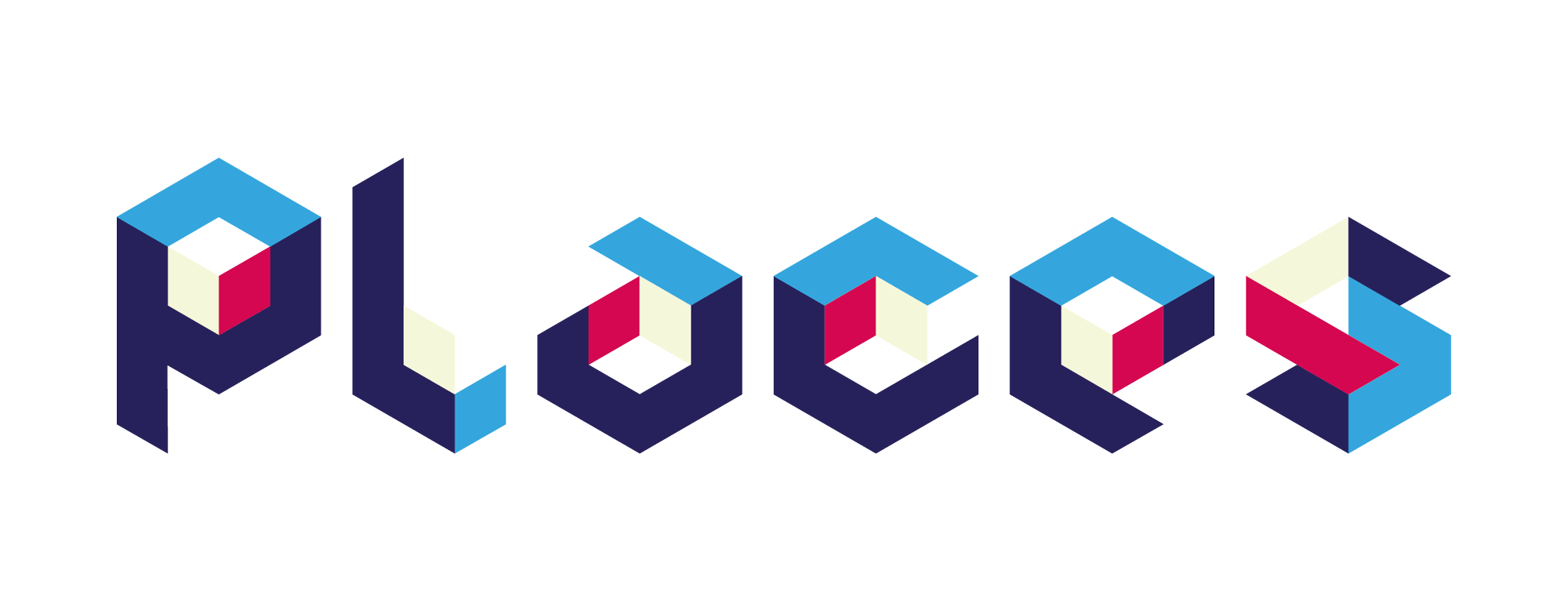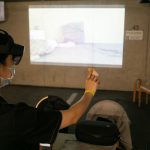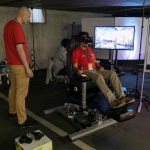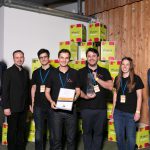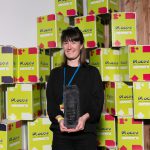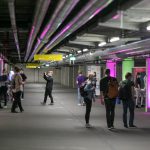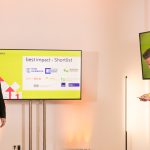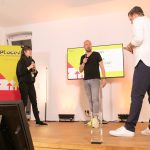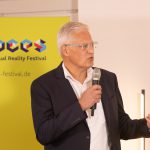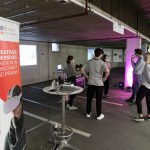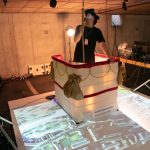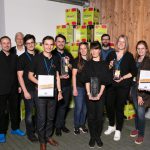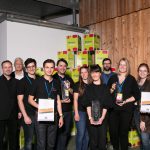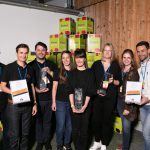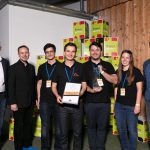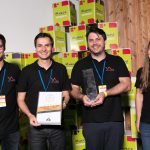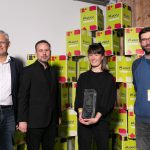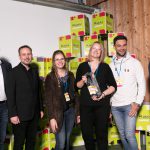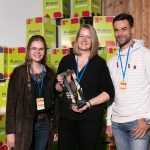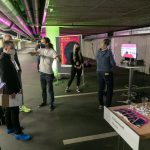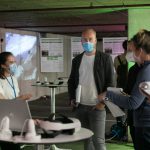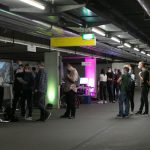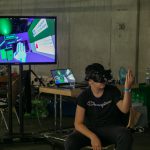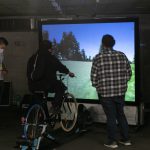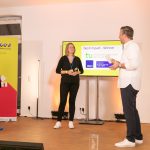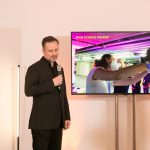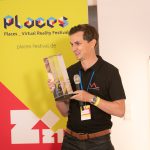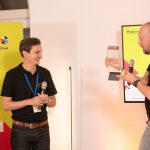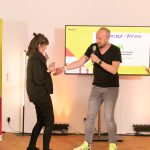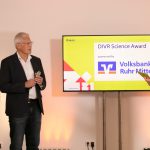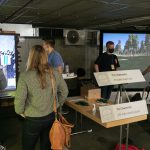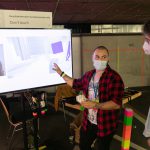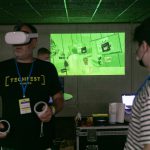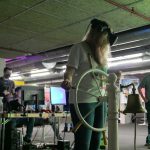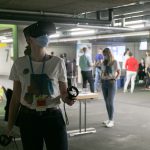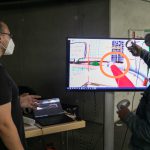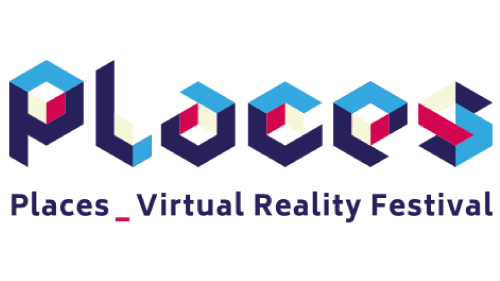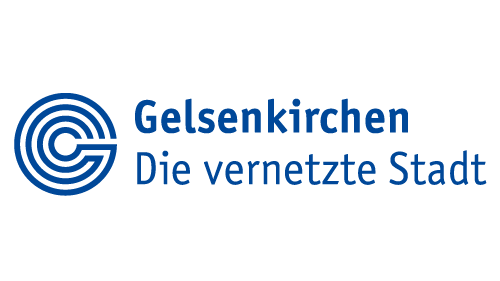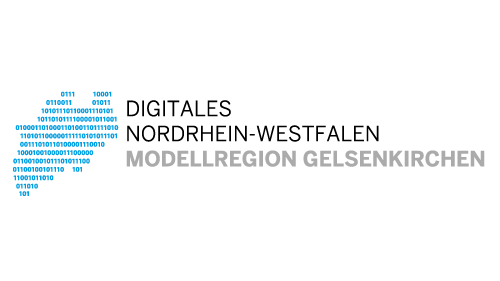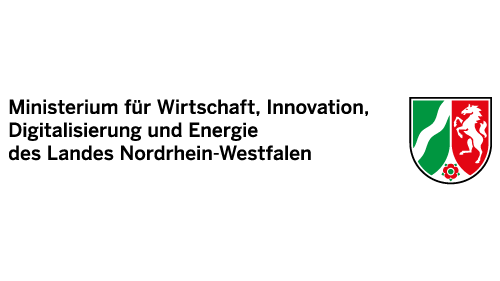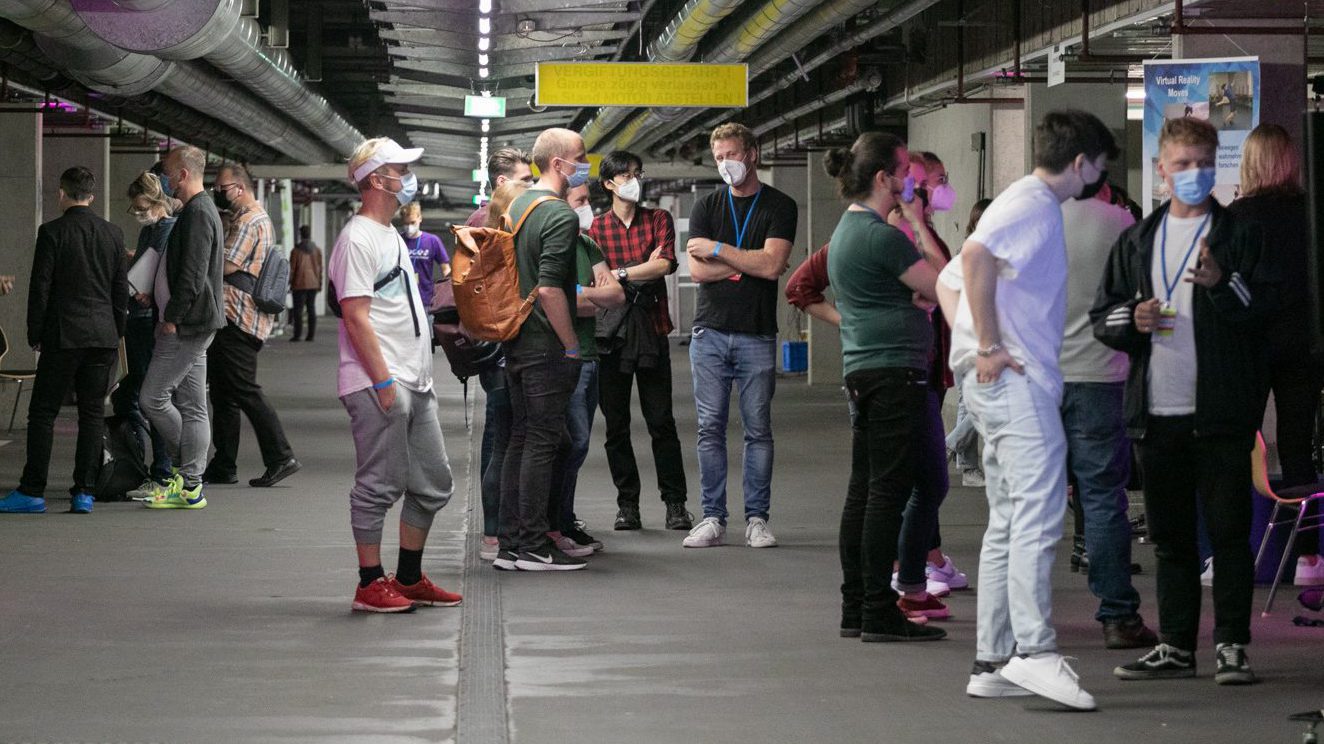
(c) Places _ VR Festival / Ole-Kristian Heyer
The avant-garde of XR research visits Gelsenkirchen
18 university teams from all over Germany made their way to the Places _ VR Festival in mid-September to take part in the DIVR Science Award 2021 with their research project. In the underground car park of the Science Park, students, doctoral students, lecturers and professors presented their VR & AR applications to the jury in order to win one of the awards. The applications ranged from virtual balloon rides and simulations of real haptics in VR to the processing of historical places that no longer exist in VR. This year’s winners come from Berlin, Esslingen and the Ruhr area.
A total of 21 universities were nominated in the three categories “best concept”, “best tech” and “best impact”. The category “best concept” is about the most innovative approach, the most creative use of extended reality or the most exciting experiment in the competition. The project with the greatest potential to initiate or accelerate social change will receive the “best impact” award. For the “best tech” category, the jury is looking for something special in the implementation: very good technical quality, a high degree of technological innovation, unique aesthetics, resource-saving execution and much more.
As part of the Places _ VR Festival, the universities gathered in the underground car park of the Science Park, following the example of Google, Apple or HP and true to the motto “Tech Innovation from the garage”. Here the universities presented themselves to the festival visitors and the award jury. This year the jury consisted of Tim Mittelstaedt (Co-Host HANNOVR), Markus Rall (Chairman DIVR e.V.), Petra Dahm (Board XR-Bavaria) and Mario Simon (Artistic Director Audiovisual Media, Schauspiel Dortmund). In the following jury meeting, the decision was not easy. “We spent almost four hours testing all the applications and we spent almost as long discussing who should ultimately get the prizes,” said Tim Mittelstaedt who gave insights into the jury meeting during the awards ceremony.
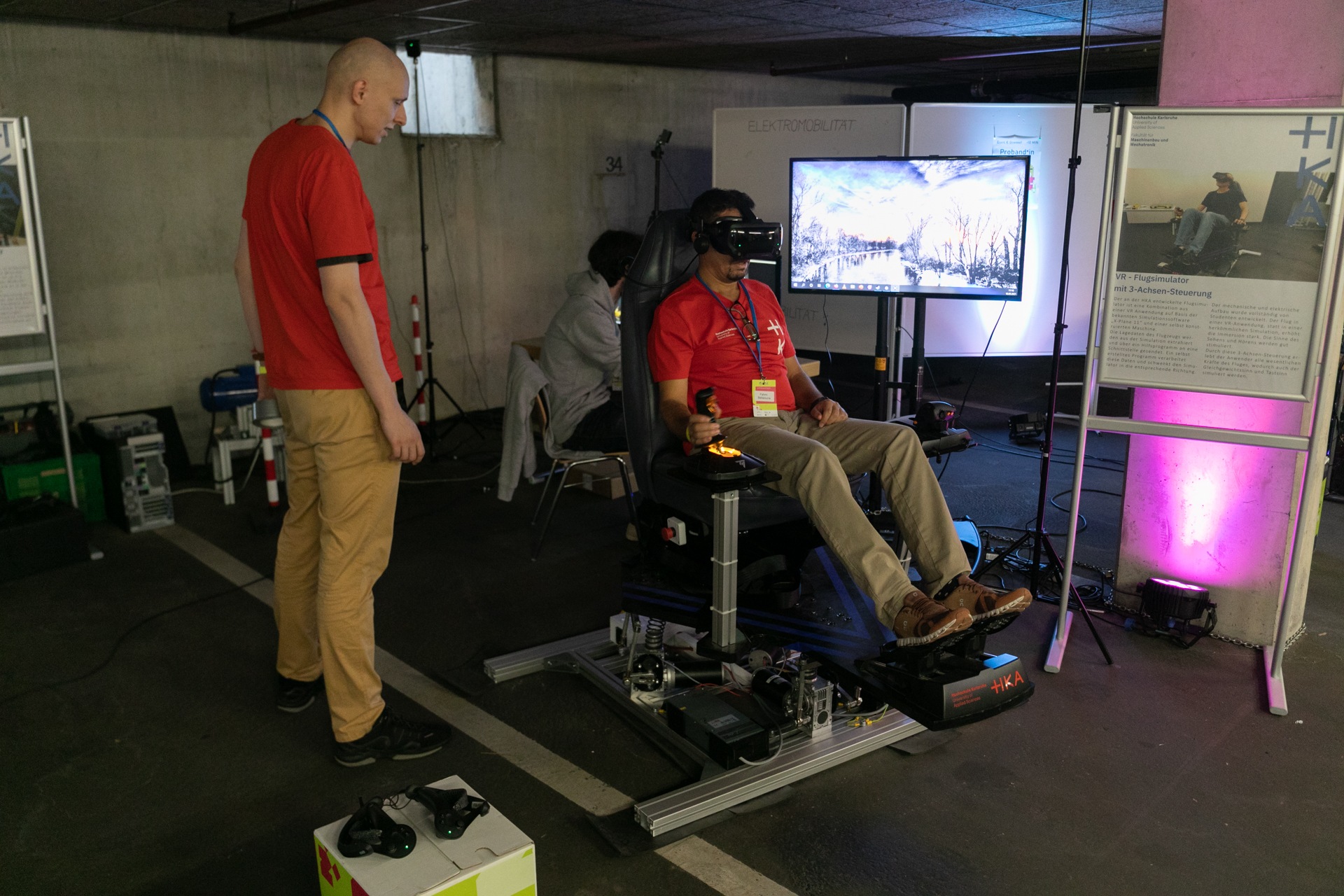
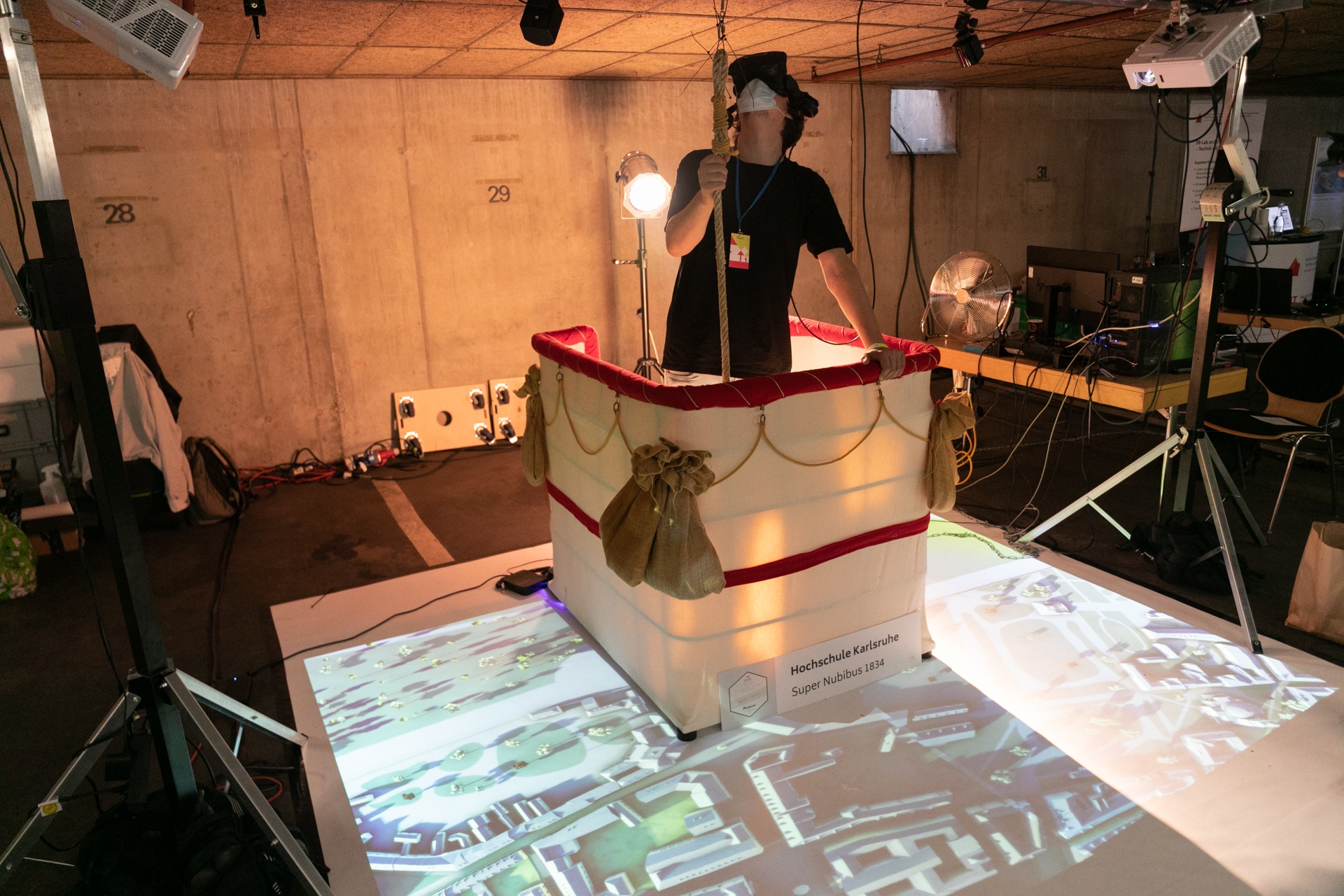
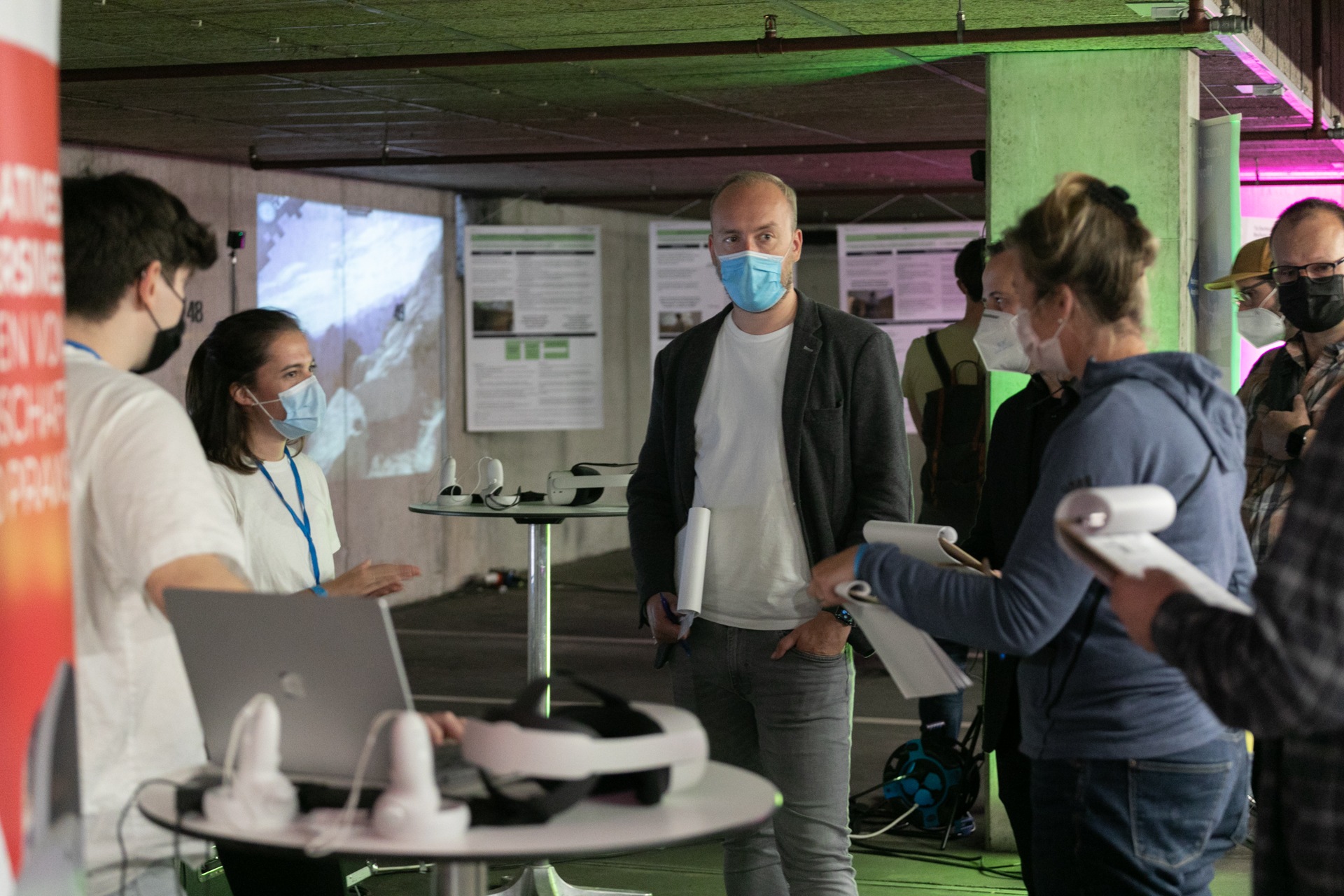
(c) Places _ VR Festival / Ole-Kristian Heyer
In the big closing show of the festival on Saturday evening, the prizes were then awarded in the three categories. The presentation of the DIVR Science Award at the Places _ VR Festival was supported by Volksbank Ruhr-Mitte. Head of Marketing Wilhelm Uhlenbruch visited the exhibition himself and stated: “I was thrilled by the diversity and do not envy the jury the decision they had to make. We congratulate all the winning teams
Winning Teams 2021:
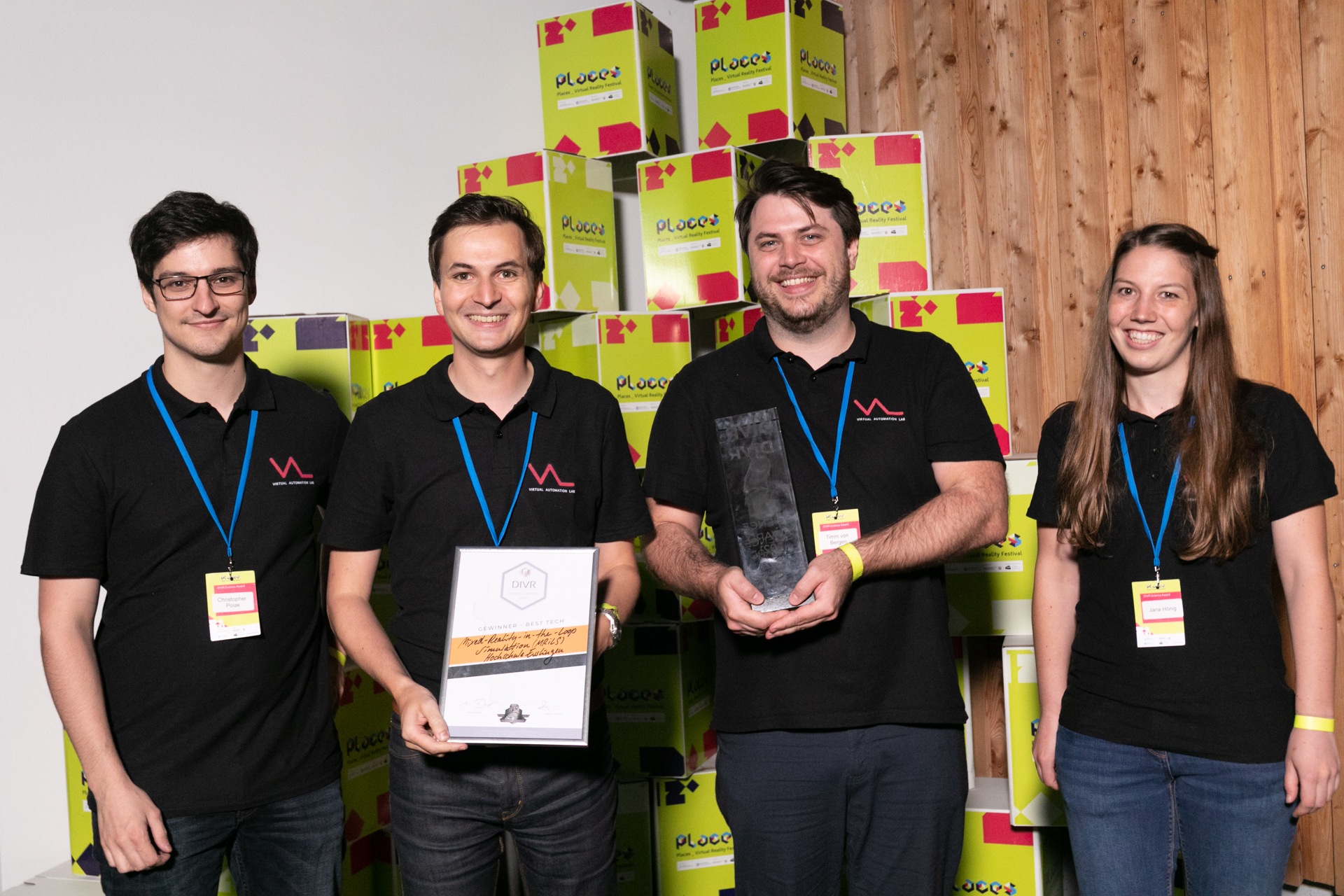
(c) Places _ VR Festival / Ole-Kristian Heyer
Winning team in the category best tech:
Hochschule Esslingen – MRiLS
MRiLS stands for “Mixed Reality in the Loop Simulation” and is a combination of classic industrial simulation, browser-based AR/VR application and the possibility of bringing digital twins into VR. The simulation from Esslingen University of Applied Sciences, represented by Marc Schniere and team, is in that sense a classic Industry 4.0. application that has both a research approach and a very practical benefit for companies. The jury highlighted the device independence thanks to the browser-based software.
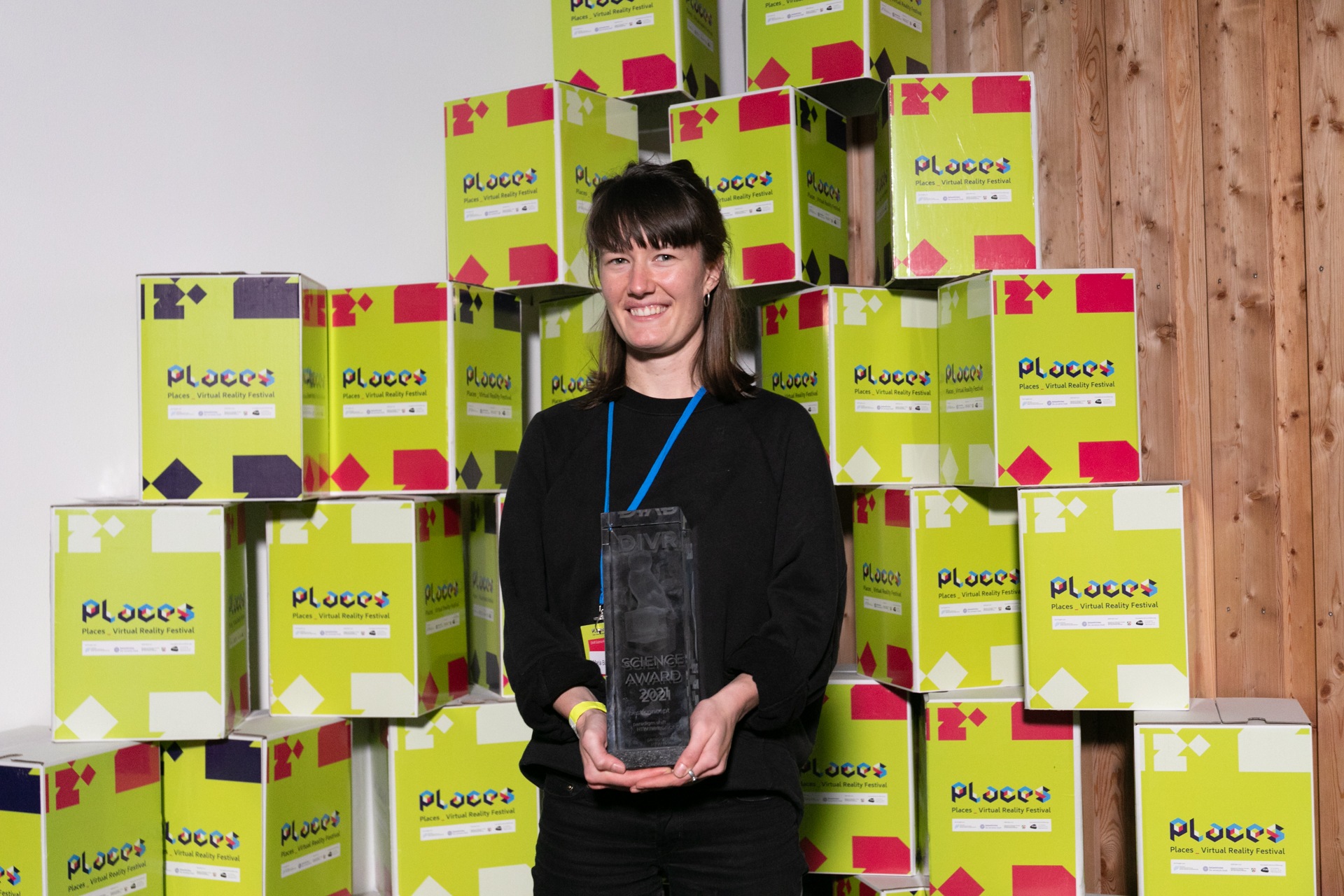
(c) Places _ VR Festival / Ole-Kristian Heyer
Winning team in the category best concept:
HTW Berlin – paradigm shift
In the application, which was presented by Maria Bürger from HTW Berlin, one enters into dialogue with a virtual voice assistant. In the immersive experience, it becomes clearer to the user over time how artificial intelligences react to human input and how we ourselves can be manipulated by artificial intelligence. From the jury’s point of view, it was remarkable how, especially after the experience, users were lastingly impressed and the application actually leads to a better understanding of AI technology.
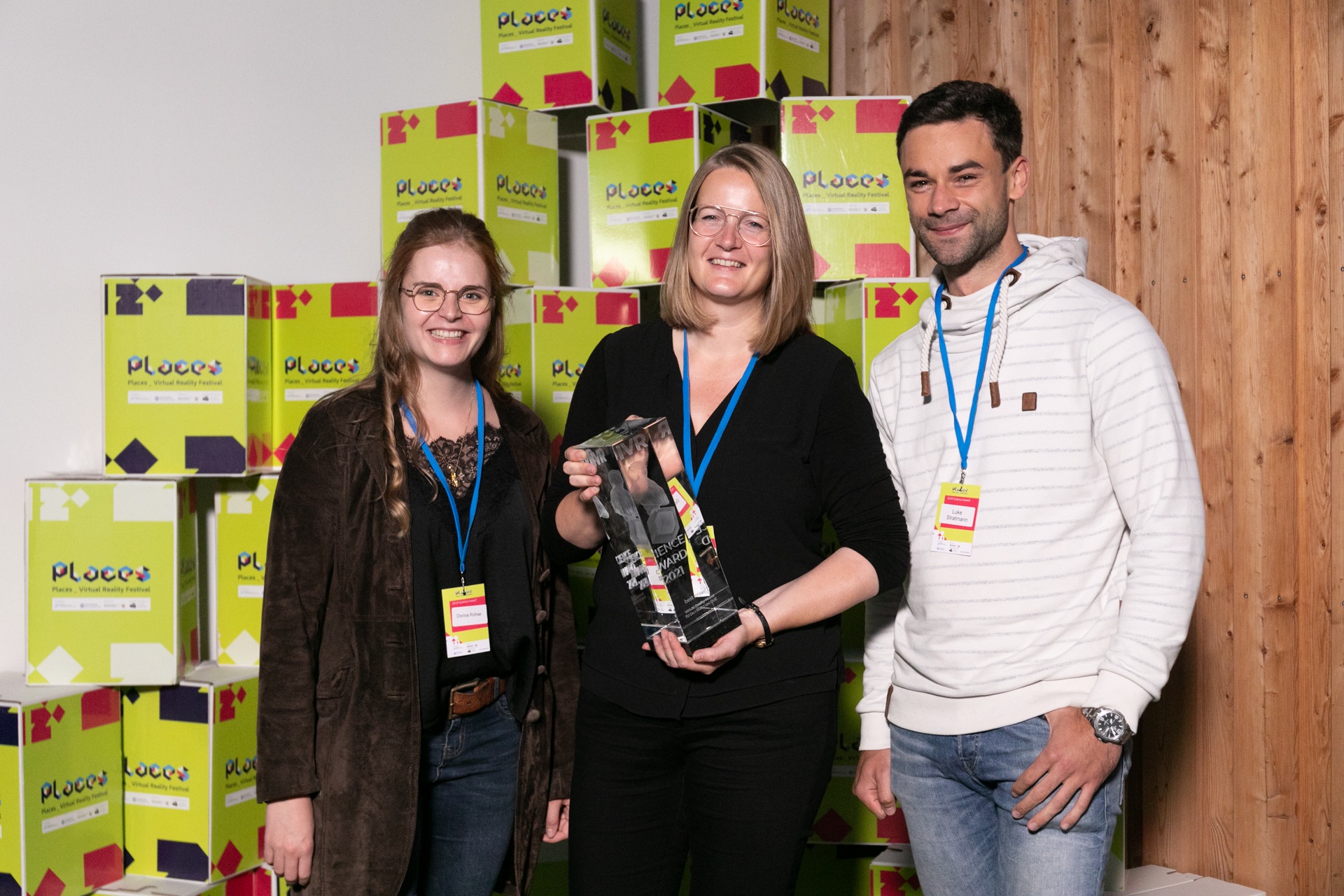
(c) Places _ VR Festival / Ole-Kristian Heyer
Winning team in the category best impact:
TU Dortmund | Ruhr-Uni Bochum | Uni Duisburg-Essen – Virtual Reality Moves
The application “Virtual Reality Moves” uses VR to bring people with and without disabilities together and thus overcome barriers. In this project, student teachers from the fields of special education, sports science and computer science worked together under the direction of Dr. Caterina Schäfer on research projects that resulted in the actual application. Here, the jury praised the interdisciplinary approach, which raises the topic of learning and cooperation in the field of special education to a new conceptual level.
Impressions
(c) Places _ VR Festival / Ole-Kristian Heyer
